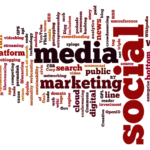In recent years, a revolution in the way we work has been quietly taking place. The rise of remote work, accelerated by global events, has transformed the traditional workplace and created a wealth of career opportunities for those willing to adapt. In this article, we will explore the remote work revolution and how it is shaping the future of work and career paths.
The Remote Work Revolution: A Paradigm Shift
Remote work, often referred to as telecommuting or telework, refers to the practice of working outside of a traditional office setting, typically from one’s home or a remote location. While remote work was already on the rise, the COVID-19 pandemic forced many organizations to swiftly embrace this model, making it a permanent fixture in the world of work.
Career Opportunities in Remote Work
- Geographic Freedom: Remote work liberates individuals from the constraints of geography. No longer tied to a specific location, workers can seek employment opportunities from companies anywhere in the world, broadening their career prospects.
- Work-Life Balance: Remote work often provides greater flexibility, allowing employees to better balance their work and personal lives. This flexibility can lead to increased job satisfaction and well-being.
- Reduced Commute: Eliminating the daily commute saves time and reduces stress. This newfound time can be reinvested into personal development, family, or leisure activities.
- Cost Savings: Working remotely can result in significant cost savings. Employees can reduce expenses related to commuting, work attire, and meals, contributing to their overall financial well-being.
- Diverse Job Opportunities: Remote work has expanded the types of jobs that can be performed remotely. While roles in technology and digital marketing were among the first to embrace remote work, various industries, including healthcare, education, and customer service, have also adopted this model.
Challenges and Considerations
While remote work offers numerous benefits, it is not without its challenges and considerations:
- Isolation: Working remotely can be isolating, leading to feelings of loneliness and disconnection from colleagues. Maintaining a healthy work-life balance is essential.
- Communication: Effective communication can be more challenging in a remote environment. Companies must invest in tools and practices to facilitate collaboration and information sharing.
- Distractions: Home environments can be filled with distractions, making it essential for remote workers to establish a productive workspace and routines.
- Security: Cybersecurity becomes a heightened concern when employees access company systems remotely. Ensuring data security is crucial.
- Career Advancement: Remote employees may face challenges in terms of career advancement and visibility within their organizations. Proactive communication and participation can help mitigate this issue.
The Hybrid Work Model: A Glimpse into the Future
As the world emerges from the pandemic, many organizations are adopting a hybrid work model that combines remote and in-person work. This model offers the best of both worlds, allowing employees to enjoy the benefits of remote work while maintaining valuable face-to-face interactions with colleagues.
Businesses that embrace remote work and the hybrid model are better positioned to attract and retain top talent, reduce overhead costs, and improve overall employee satisfaction. This shift is also reshaping the concept of the traditional career ladder, as remote work empowers individuals to design their career paths according to their preferences and priorities.
In conclusion, the remote work revolution is redefining how we work and offering unprecedented career opportunities. While it presents challenges, the benefits of geographic freedom, work-life balance, and cost savings are reshaping the workforce’s landscape. As the future of work continues to evolve, those who adapt and embrace remote work may find themselves at the forefront of a new era in their career journeys.


